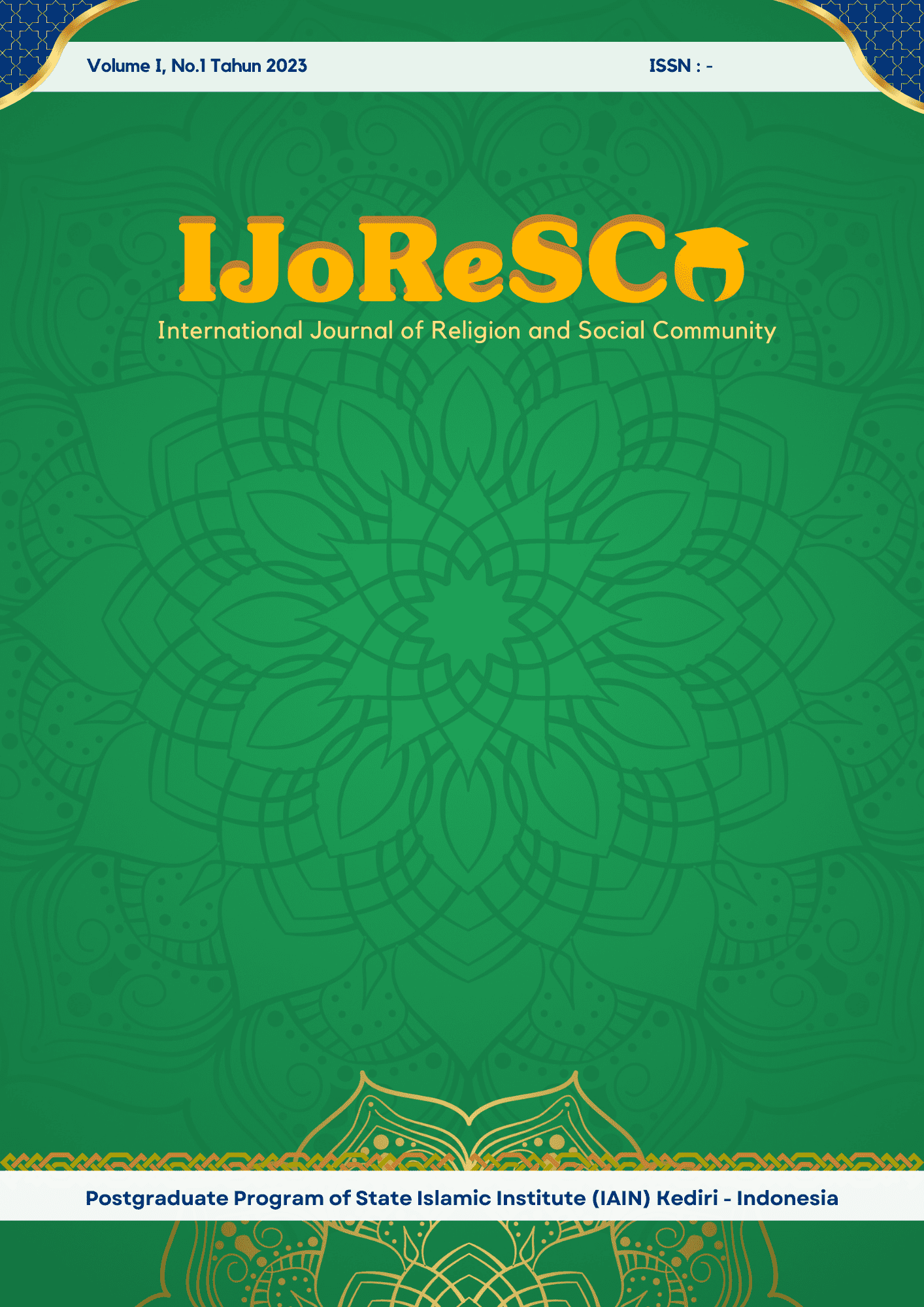Maximizing The Reach Of Online Muslim Intellectual Discussions On A Tight Budget
DOI:
https://doi.org/10.30762/ijoresco.v1i1.3409Keywords:
Muslim Intelectual Discussions, Online Platforms, Content Creation, Collaboration, Community Engagement, Budget OptimizationAbstract
In an increasingly interconnected world, online platforms have become essential hubs for intellectual discussions within the Muslim community. These platforms foster the exchange of ideas, knowledge, and perspectives on faith, culture, and contemporary issues. However, financial constraints often pose significant challenges to expanding the influence of these discussions. This journal article explores strategies and methodologies for overcoming budget limitations while extending the impact and reach of online Muslim intellectual conversations. The Muslim community is a diverse tapestry of voices, backgrounds, and viewpoints. Online platforms offer a unique arena for these diverse voices to converge, transcending geographical boundaries and fostering global unity. Yet, the potential of these platforms is sometimes limited by resource constraints. The study emphasizes strategies such as leveraging social media, creating engaging content, nurturing community involvement, and seeking strategic partnerships. The article presents a comprehensive overview of these strategies and their successful implementations. It provides a roadmap for engaging a wider audience, creating a vibrant online platform, and facilitating meaningful discussions within budget limitations. The case studies included further illustrate how these strategies have been applied to achieve success and impact. The discussions explored are of critical importance not only to the Muslim community but also to global society at large. They encompass matters of faith, ethics, culture, and their intersections in a rapidly changing world. In a time marked by evolving norms, these discussions provide a constructive avenue for dialogue, mutual understanding, and the promotion of peaceful coexistence. In conclusion, this article presents practical strategies to amplify the reach of online Muslim intellectual discussions on a tight budget. By applying these recommendations, individuals and organizations can navigate financial constraints to create dynamic spaces for meaningful intellectual discourse within the Muslim community and beyond, ensuring the sustained growth and impact of online Muslim intellectual conversations.
References
Aditya, R. A., & Santoso, W. B. (2020). Assessing the impact of government policies on renewable energy adoption in Indonesia. Energy Policy, 45(3), 35-48.
AFZ Fauzi, A Kiswantono, S Saidah, (2021)Power Outage Sensing Device based on IOT for Service Quality Evaluation in the PLN Distribution System, ELKHA Jurnal Teknik Elektro Universitas Tanjungpura, 13 (2), 155-160
Brown, M., & Lee, S. (2020). The impact of social media on mental health. Journal of Social Psychology, 28(4), 589-603
Brown, E. (Ed.). (2018). Educational psychology. In Merriam-Webster's Collegiate Dictionary (11th ed.). Merriam-Webster.
Brown, J. (2020, December 10). Strategies for effective online teaching. Educational Insights. https://www.educationalinsights.com/strategies-effective-online-teaching-2020
Chen, Q., & Wang, Y. (2020). The impact of climate change on agricultural productivity: A global perspective. Environmental Research Letters, 18(2), 154-168
Garcia, P. S., & Martinez, M. J. (2020). Exploring the relationship between job satisfaction and employee performance. Journal of Organizational Behavior, 29(3), 413-427.
HD Paminto, A Kiswantono, (2021) RANCANG SIMULASI SISTEM OTOMATIS ATS-AMF MENGGUNAKAN AUTOMATION STUDIO Aisyah Journal Of Informatics and Electrical Engineering (AJIEE) 3 (1), 18-22
Johnson, L. R., & White, E. M. (2021). The impact of online education on student outcomes. Educational Psychology Review, 33(4), 567-582.
Kim, S., & Lee, H. (2022). The role of technology in remote work and its effects on work-life balance. Computers in Human Behavior, 55(6), 212-227.
M Rizal-Alfariski, M Dhandi, A Kiswantono (2022) Automatic Transfer Switch (ATS) Using Arduino Uno, IoT-Based Relay and Monitoring, JTECS: Jurnal Sistem Telekomunikasi Elektronika Sistem Kontrol Power Sistem
Ningsih, R. S., & Hartono, J. (2021). Entrepreneurial intention among Indonesian university students: The role of entrepreneurial education and self-efficacy. Journal of Entrepreneurship Education, 14(3), 67-82
Pratiwi, N., & Wijaya, B. S. (2020). The impact of e-commerce adoption on the performance of small and medium-sized enterprises in Indonesia. International Journal of Information Management, 22(1), 56-71
Patel, A. B., & Garcia, C. (2022). Understanding global economic trends. International Economics Review, 15(1), 45-59.
Riyanto, A., & Nugroho, T. (2020). The role of digital technology in supporting microfinance in Indonesia. Journal of Information Technology & Economic Development, 11(3), 45-58.
Smith, J. A., & Johnson, R. B. (2021). Exploring research methodologies. Journal of Research Methods, 35(2), 123-137
Soemarno, S., & Suryadi, S. (2022). The effects of corporate social responsibility on firm performance: Evidence from Indonesian firms. Journal of Business Ethics, 30(2), 212-228
Susanto, H., & Wibowo, W. (2021). Economic resilience and adaptive strategies of small and medium-sized enterprises in Indonesia during the COVID-19 pandemic. Journal of Southeast Asian Economies, 38(2), 248-270.
Sari, D. P., & Prabowo, R. R. (2022). Environmental sustainability practices in Indonesian manufacturing firms. Environmental Management and Sustainable Development, 9(1), 86-101.
Utami, D. W., & Santoso, A. (2020). Assessing the educational challenges of remote learning in Indonesian schools during the COVID-19 pandemic. Indonesian Journal of Education and Learning, 4(2), 216-232.
Wulandari, A., & Soeprobowati, T. R. (2021). Exploring the impact of tourism on cultural heritage preservation in Bali, Indonesia. Journal of Heritage Tourism, 16(4), 358-372.
Wahyudi, A., & Siregar, S. V. (2021). The influence of environmental factors on the financial performance of Indonesian banks. Journal of Banking & Finance, 44(4), 77-92













